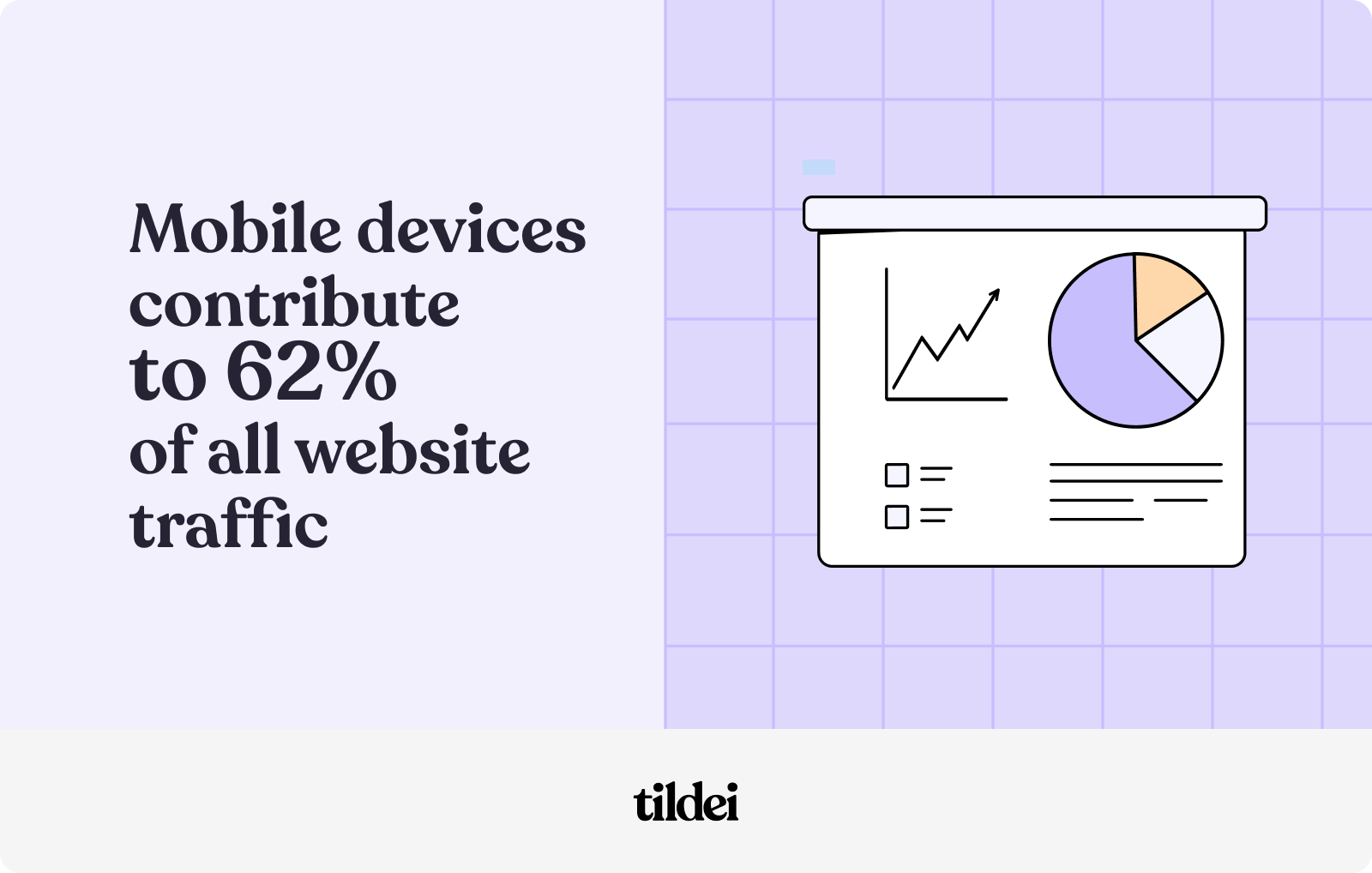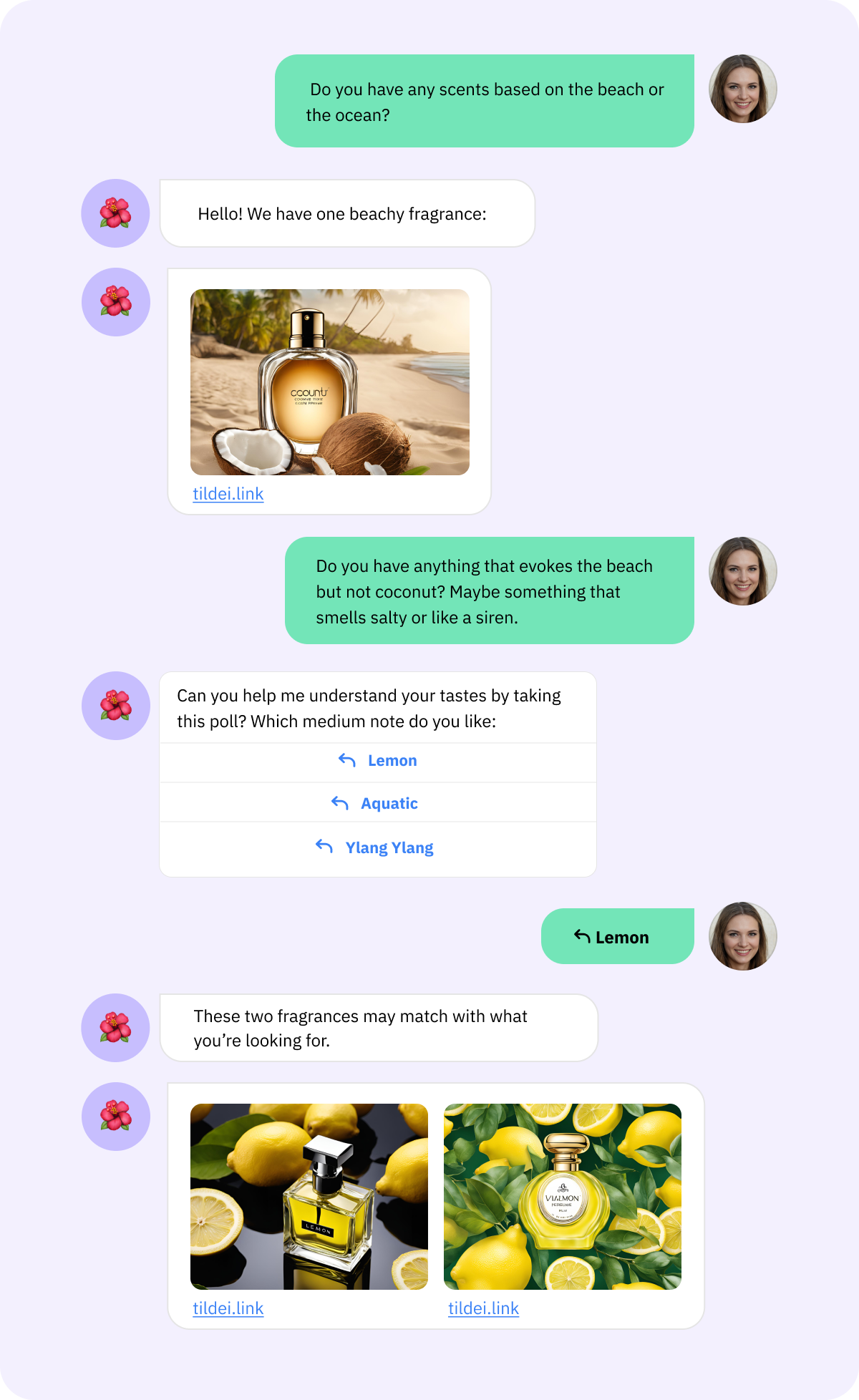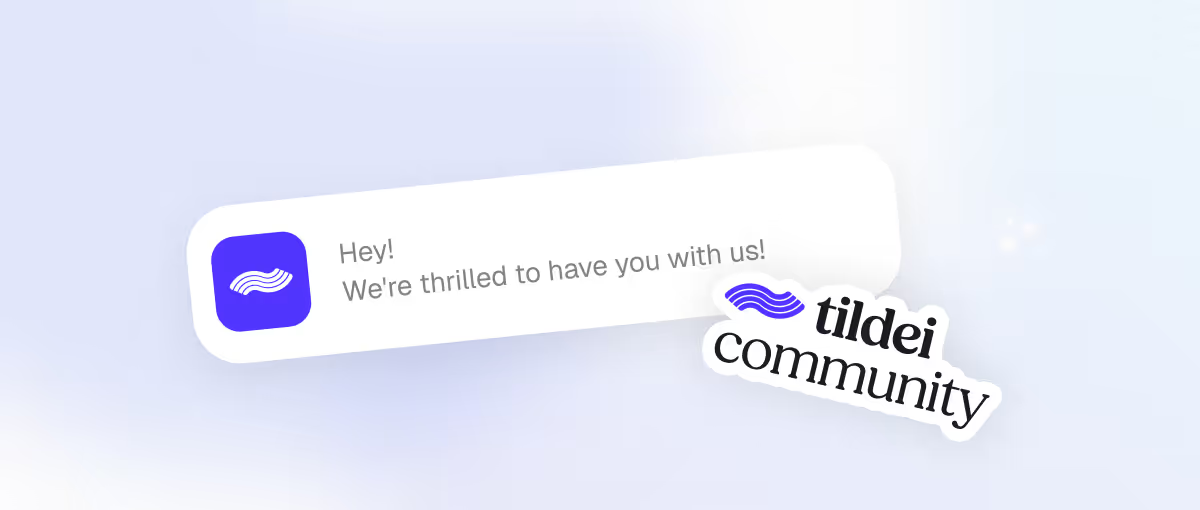How to Use Conversational Marketing for a More Effective Retail Strategy
Marketers are leveraging AI tools like Tildei to supercharge their strategies with conversational marketing, which enhances customer interactions both online and in-store. By integrating AI-driven chats into their marketing mix, brands can personalize experiences, collect valuable data, and maintain engagement seamlessly across all touchpoints.
Marketers obsessed with innovation in the retail space are exploring how to enhance their strategy with artificial intelligence (AI) tools in a meaningful way.
For many organizations, the prime challenge is to integrate AI technology into their marketing workflows to retain a competitive advantage and stand out from the pack.
Tildei provides marketers with a platform to seamlessly bring the benefits of AI into their strategy through the powerful use case of conversational marketing.
What are the Benefits of Conversational Marketing
Conversational marketing allows brands to communicate with customers and prospects through interactions on popular channels at the convenience of the customer. In addition, the conversational aspect makes it easier for brands to continue to personalize customer experience on other channels.
The two main benefits of conversational marketing are:
- Improving customer experience and strengthening the relationship between brand and customer
- Collecting customer feedback, data, and preferences in a frictionless way, and embedding it into the brand and future communication
The Tildei platform incorporates AI in a way that prioritizes the marketer’s creativity. The marketer trains the AI on tone and voice and drafts campaign prompts that can create conversational flows for customers. With Tildei, the marketer is not spending time building out conversational flows and instead can focus on integrating the conversation into larger strategic initiatives.
In this post, we’ll cover how conversational marketing can be used to enhance your in store and website experience.
Conversational Marketing for Enhancing In-Store Experience
Our findings show that the in-store shopping experience is a major draw for customers, as it eases browsing by offering sensory and interpersonal interactions. According to Appnova, consumers look for unique experiences – more than half would attend a pop-up store, while 42% would participate in an experience-driven social event or demo inside a store.
Conversational marketing is well-suited to meet the needs of today’s consumers and bridge the in-store and online shopping experience.
Let’s say your brand is launching a new fragrance line. For in store customers, you can include a QR code. Scanning the QR code, opens up a WhatsApp channel or prompts a download. The WhatsApp channel is branded and prompts the shopper to an activation for the fragrance line, where there is a blind smell test. Shoppers can sniff the fragrance and learn about the origins of each scent. The WhatsApp experience educates consumers on the process of creating the perfume.
Once they finish smelling the fragrances, the chat can ask them which one they like best. The chat experience can ask more questions around whether they plan to wear it everyday or if they are shopping for a special occasion. The experience can end with a discount code to further push for conversion.
Conversational Marketing Augments the In-Store Experience
- The online experience is on all the time: If the store is busy, the sales associate is occupied, or you’re unable to hire multiple sales associates, or the customer has a question after they leave the store, the described WhatsApp conversational marketing experience can interact with the shopper.
- Tailor follow-up experiences: New communication on multiple channels can reflect the choices and interactions on the chat
- Deepens the showroom: The gamification over chat increases in person interactions with the product. Shoppers are slowing down and smelling the fragrances and thinking about their preferences—spending more time in-store and building brand relationship
Conversational Marketing for Enhancing Web Experience
As of July 2024, mobile devices contribute to 61.95% of all website traffic. Conversational marketing allows brands to take advantage of mobile browsing by providing a space to prompt organic dialogue on the channels where customers live.

At Tildei, we’ve launched conversational experiences on WhatsApp first based on its inherently conversational approach and its fast growing user base with additional channels on the horizon. Let’s look at an example of how conversational marketing can drive personalization on web experiences.
A prospect comes to your website through a promotional email around our example fragrance launch. They are a bit of a fragrance nerd and have a few questions about the launch—which is themed by different cities. The prospect notices that one of the scents is based on Nice, France. She read the fragrance notes, but the scent seems floral and they are interested in a beach scent. She searches for beachy fragrances, but the search term only pulls up a coconut scent. The prospect notices that she can get more information by talking to a fragrance stylist on WhatsApp. They click the link and it opens their WhatsApp application on their phone. The channel is branded and the prospect receives a welcome message and the option to take a fragrance quiz or ask a question.

The embedded knowledge in the platform pulls the information into the chat and the prospect is able to have the experience of a well informed sales associate from the comfort of their phone.
Conversational Marketing Tailors the Online Experience
Conversational campaigns offer several benefits.
- Continued Attention: Without the ability to ask more questions, a prospect might have given up their search, but these campaigns can replicate the in-person shopping experience, keeping them engaged.
- Collect Preferences: Knowing what the prospect is looking for allows for personalized follow-up messaging. After they receive a sample, for example, another chat can inquire about their preferred fragrance, and subsequent emails can include content tailored to their interest in aquatic fragrances.
Interested in learning more about how to build out campaigns like these and how AI can enhance your marketing efforts? Reach out to us and let’s talk.


.jpg)


